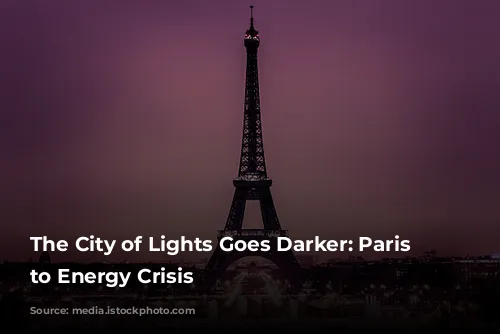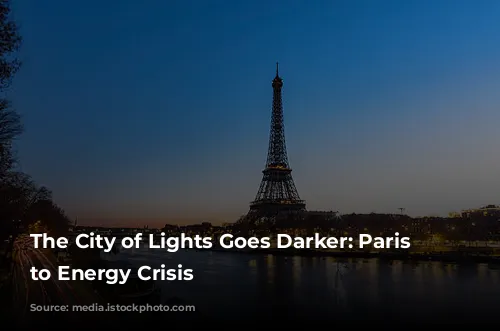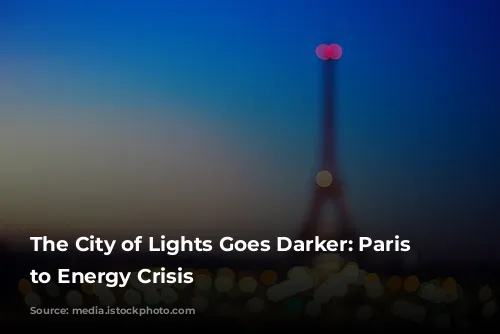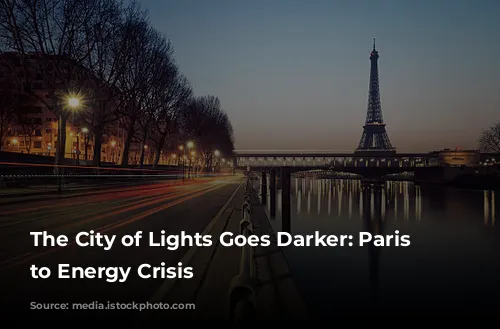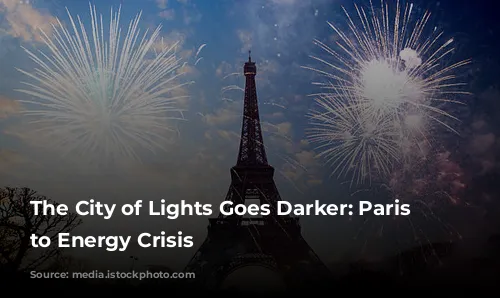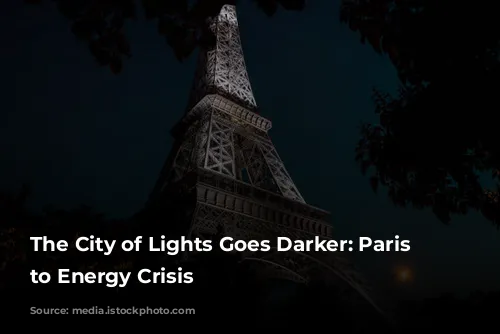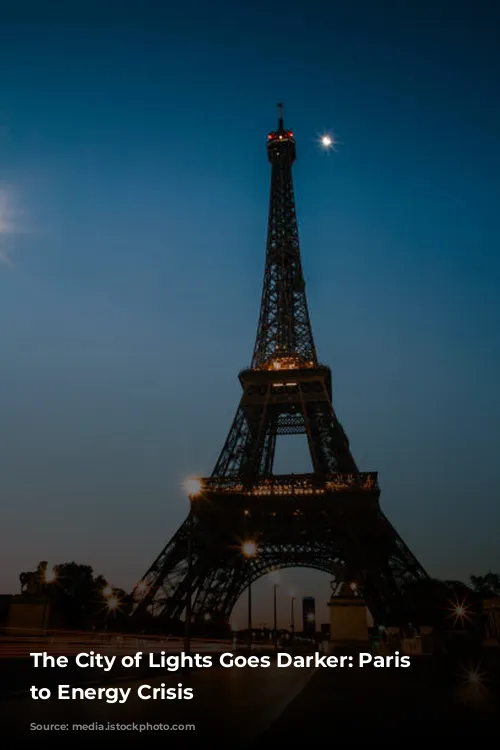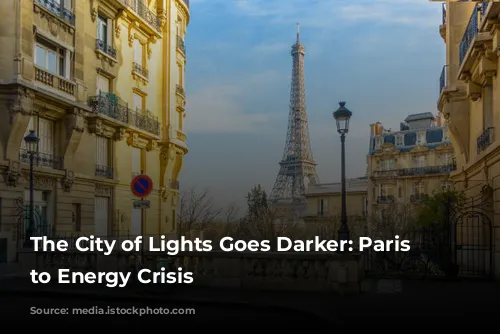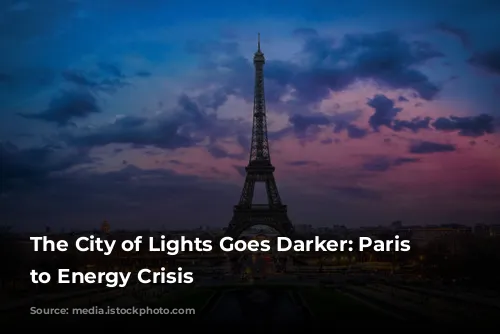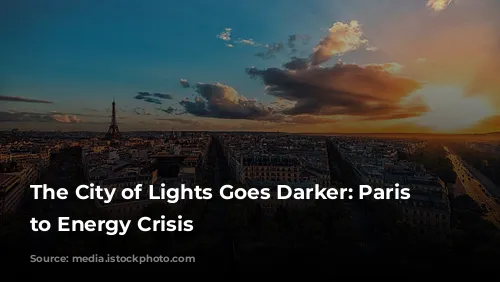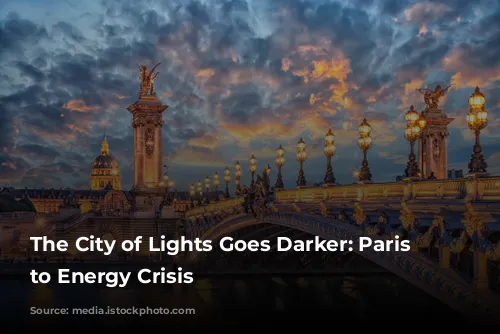Paris, the City of Lights, is dimming its sparkle in response to the escalating energy crisis gripping Europe. In a move to conserve energy, Parisian officials have announced a new schedule for the iconic Eiffel Tower, turning off its lights earlier than usual.
The tower, typically illuminated until 1 a.m., will now go dark at 11:45 p.m. starting September 23rd, aligning with its closing time.
This symbolic gesture, as Mayor Anne Hidalgo termed it, is part of the French capital’s broader energy conservation plan. Other monuments and municipal buildings will also dim their lights earlier to achieve a 10% reduction in energy consumption, a goal set by President Emmanuel Macron.
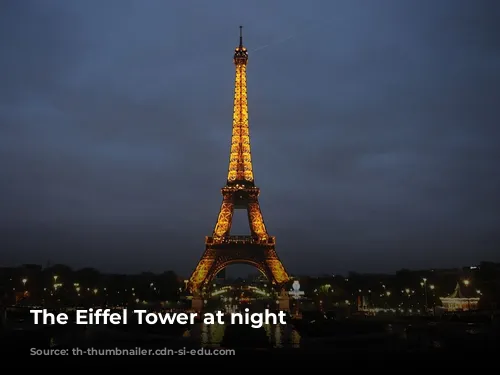
A City-Wide Effort
Paris’ efforts are not limited to dimming its monuments. To further conserve energy, public building temperatures will be lowered during business hours.
- The thermostat will be set to 64 degrees Fahrenheit (18 Celsius) during the day and 61 degrees Fahrenheit (16 Celsius) during nights and weekends.
- Additionally, heating in public buildings will be delayed from mid-October to mid-November.
This city-wide initiative reflects the pressing need to address the energy crisis affecting Paris and other parts of Europe. The crisis, largely attributed to Russia’s invasion of Ukraine, has led to reduced natural gas supplies from Russia to European nations, causing skyrocketing prices for electricity and gas.
A Global Challenge
The energy crisis is a global challenge, prompting countries to implement measures to reduce energy consumption and mitigate the risk of blackouts and power shortages.
For example, Spain has implemented regulations requiring shops, restaurants, bars, and offices to keep their air conditioning above 81 degrees Fahrenheit (27 Celsius) during the summer and below 66 degrees Fahrenheit (19 Celsius) during the winter.
These measures underscore the seriousness of the energy crisis, impacting not only cities and individuals but also industries like manufacturing. European manufacturers are facing significant challenges, including furloughs and production cuts for items like steel, fertilizer, and even toilet paper.
As Nicholas Hodler, head of the Arc International glass factory in France, aptly puts it, “It’s the most dramatic situation we have ever encountered… for energy-intensive businesses like ours, it’s crippling.”
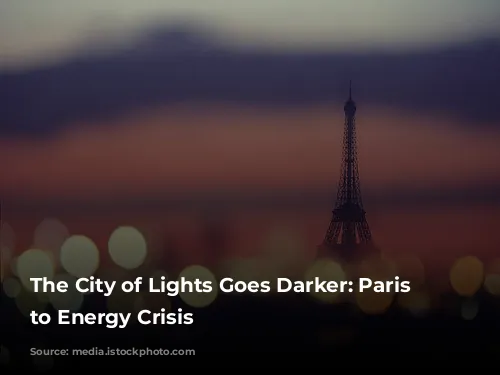
Paris Lights Up the Path to Sustainability
Paris’ decision to dim its iconic tower symbolizes the city’s commitment to sustainability and energy conservation in the face of a global challenge. The city-wide efforts, including temperature adjustments in public buildings and early light shutdowns, are practical steps to reduce energy consumption and ensure the well-being of its citizens.
As Paris adapts to these new realities, it serves as a reminder that energy conservation is a collective responsibility, one that requires individual and collective efforts to navigate the global energy crisis and build a more sustainable future.
